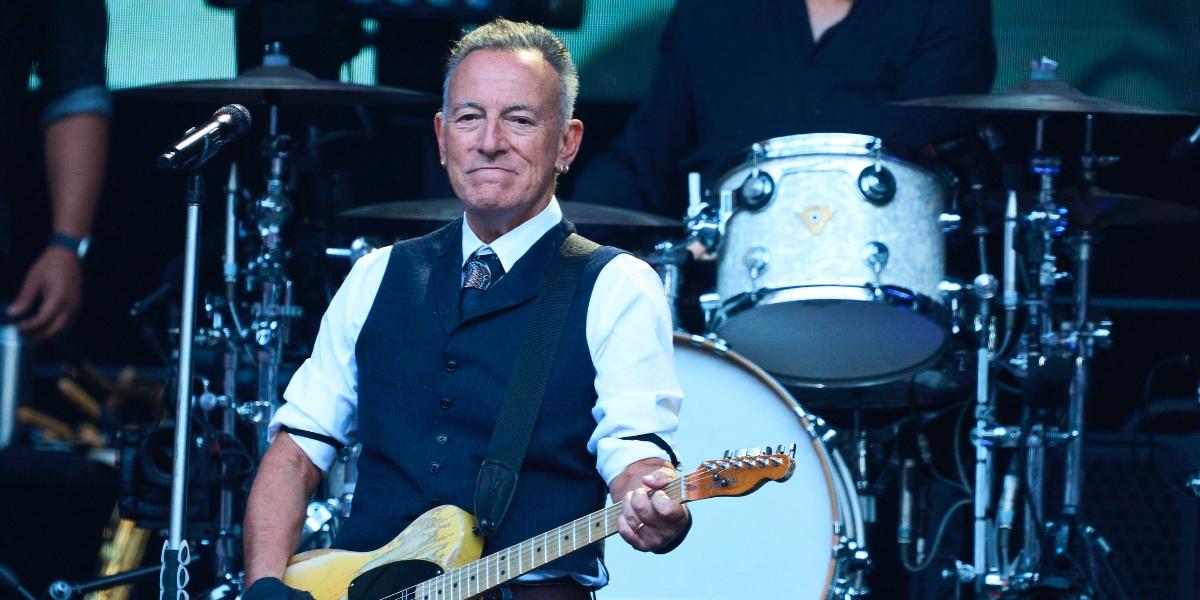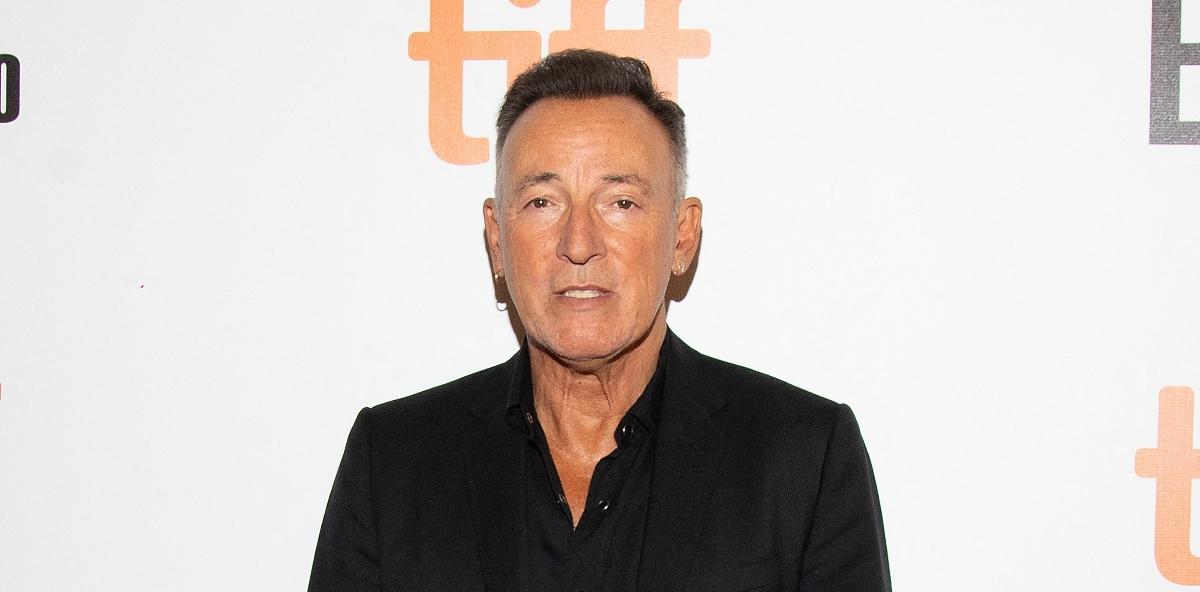Have you ever wondered about the path a rock legend took before hitting the big stage, especially when it came to something as serious as military service? So, it's almost a common thing to look back at history and see how major figures navigated the important moments of their time. For Bruce Springsteen, a musician whose songs often spoke for the working person, his connection to the Vietnam War era draft is a question many fans have. It's a part of his story that, in a way, shaped his early life and perhaps even his music.
The draft, as you know, was a really big deal for young men in America during the Vietnam War. It cast a long shadow over a whole generation, forcing many to make incredibly tough choices about their future. For a budding artist like Springsteen, then just starting out, the call to serve was a very real possibility, a moment that could have completely changed his life's direction.
This article will look closely at the details of why Bruce Springsteen didn't get called up for military duty. We'll explore the specific reasons, the timing of events, and what it meant for him personally. We'll also consider how this experience might have influenced his art, which, as a matter of fact, often touched on themes of struggle, everyday life, and the American experience.
Table of Contents
- Bruce Springsteen: A Quick Look
- The Draft System in the Vietnam Era
- Bruce Springsteen's Draft Day Experience
- Impact on His Life and Music
- Common Questions About Springsteen and the Draft
Bruce Springsteen: A Quick Look
Bruce Frederick Joseph Springsteen, a truly iconic American singer-songwriter, has been a major force in music for decades. Born in New Jersey, he built a career on powerful storytelling and energetic live shows. His songs, you know, often paint vivid pictures of ordinary lives, dreams, and challenges, making him a voice for many.
Here are some personal details and bio data about "The Boss":
| Detail | Information |
|---|---|
| Full Name | Bruce Frederick Joseph Springsteen |
| Born | September 23, 1949 |
| Birthplace | Long Branch, New Jersey, USA |
| Occupation | Singer, Songwriter, Musician |
| Nickname | The Boss |
| Genre | Rock, Heartland Rock, Folk Rock |
| Years Active | 1965–present |
| Notable Works | Born to Run, Darkness on the Edge of Town, The River, Born in the U.S.A. |
The Draft System in the Vietnam Era
To understand why Bruce Springsteen wasn't called up, it's pretty important to grasp how the draft worked back then. The Selective Service System was responsible for getting young men into the military, especially during the Vietnam War. This system, in a way, had various classifications, from 1-A (eligible for service) to 4-F (unfit for service).
Initially, it was a more subjective system, but later on, a lottery was introduced in December 1969. This lottery assigned a number to each birth date, determining the order in which young men would be called. A lower number meant a higher chance of being drafted. Yet, even with the lottery, physical and mental fitness still played a very big role in who actually served.
Bruce Springsteen's Draft Day Experience
Bruce Springsteen's encounter with the draft took place in 1967, before the lottery system was put into place. He was just 18 years old, a young man with musical dreams, living in Freehold, New Jersey. This day, you know, was a pivotal moment, one that could have sent his life down a completely different road.
He arrived at the induction center, a place filled with nervous young men, all facing the same uncertain future. This was a common scene for countless American families during that period, a time of real tension and anxiety for many. He, like others, went through the standard procedures, including medical checks.
The Medical Examination
During his physical examination, Springsteen had to go through a series of tests and evaluations. He had a history of some health issues that, in a way, played a part in the outcome. A motorcycle accident had given him a concussion, and he also had a knee problem, which, as a matter of fact, was a persistent issue for him.
He described the experience in his autobiography, "Born to Run." He mentioned feeling a bit out of it, kind of groggy and light-headed during the physical. This feeling, you know, was a direct result of the concussion he had suffered earlier, making the whole process even more disorienting for him.
The Reason for Rejection
After the examination, Bruce Springsteen received a 4-F classification, meaning he was deemed unfit for military service. The primary reasons for this classification were his previous concussion and the knee injury. These conditions, as it turned out, made him medically ineligible to serve in the armed forces.
The medical staff determined that his health issues were significant enough to prevent him from fulfilling the physical demands of military duty. So, he wasn't called up, and his path remained open for music. This decision, in some respects, allowed him to continue pursuing his passion, which, as we know, eventually led to his incredible success.
Impact on His Life and Music
Not serving in the military, you know, had a clear and lasting impact on Bruce Springsteen's life. While many of his peers were sent to Vietnam, he was able to stay home and focus on his music. This experience, or rather, the lack of a military experience, shaped his perspective in a unique way. He observed the struggles of those who did serve, and those who came back, which, naturally, influenced his songwriting.
His songs, like "Born in the U.S.A.," often touch upon the experiences of Vietnam veterans and the challenges they faced upon returning home. While he didn't serve, he connected deeply with the stories of those who did. This connection, in a way, gave his music a powerful authenticity, speaking to the heart of the American working class and their experiences with war and its aftermath.
The fact that he wasn't drafted meant he could pour all his energy into developing his craft and performing. This dedicated focus, you know, was crucial for his early career, allowing him to hone his skills and build a loyal following in the clubs of New Jersey. It's almost certain that his musical journey would have been very different had he been called into service.
His empathy for the ordinary person, a hallmark of his music, was perhaps deepened by observing the impact of the draft on his community. He saw firsthand the difficult choices and consequences faced by young men and their families. This perspective, as a matter of fact, fueled his desire to tell their stories through his songs, giving voice to their hopes and their struggles.
You can learn more about Bruce Springsteen's early life on our site, and also explore this page about the cultural impact of the Vietnam War.
Common Questions About Springsteen and the Draft
Did Bruce Springsteen have a high draft number?
Bruce Springsteen's draft experience happened in 1967, before the lottery system was put into place. So, he didn't actually have a draft number in the way people think of it from the later lottery. His classification as 4-F, based on his medical condition, was the reason he wasn't called up, regardless of any number that might have been assigned later.
What was Bruce Springsteen's medical condition for draft exemption?
Bruce Springsteen was classified 4-F due to a concussion he sustained in a motorcycle accident and a "bad knee." During his physical examination, he reported feeling groggy and light-headed, which, you know, was linked to the concussion. These conditions were deemed significant enough to make him medically unfit for military service.
How did the Vietnam War draft affect musicians like Springsteen?
The Vietnam War draft, in a way, had a huge impact on many musicians and artists of that era. Some served, some sought exemptions, and others protested. For Springsteen, his 4-F classification meant he could continue his musical pursuits without interruption. This allowed him to focus on his art, which, as a matter of fact, often reflected the social and political climate of the time, including the war's effects on American life. It really shaped the kind of music that came out of that period.
Bruce Springsteen's draft story, then, is a small but significant piece of his larger narrative. It shows how personal health issues, combined with the realities of a nation at war, shaped the path of a future legend. His experience, in some respects, allowed him to become the voice of a generation, telling stories that resonated deeply with millions. His journey, you know, is a powerful reminder of how individual circumstances can align with historical moments to create something truly remarkable. For more information about Bruce Springsteen's life and career, you might want to visit his official website, which is a really great resource.
Related Resources:



Detail Author:
- Name : Katlyn Nitzsche
- Username : kavon13
- Email : anais98@gmail.com
- Birthdate : 1992-08-25
- Address : 555 Carli Spur Suite 403 Boganton, FL 85527
- Phone : +14246377701
- Company : Tillman-Langosh
- Job : Range Manager
- Bio : Soluta occaecati voluptatem et nam veritatis laborum. Non ex rerum et. Dignissimos voluptas sunt et dolor. Quo sit eum et illo ducimus provident inventore.
Socials
facebook:
- url : https://facebook.com/sanforde
- username : sanforde
- bio : Facilis totam aut ullam quibusdam ad ut a. Aut vitae et eligendi voluptas.
- followers : 1318
- following : 2635
tiktok:
- url : https://tiktok.com/@sanforde
- username : sanforde
- bio : Et eaque tenetur alias quia ut harum aspernatur.
- followers : 3615
- following : 2683
twitter:
- url : https://twitter.com/sanford1991
- username : sanford1991
- bio : Excepturi eveniet alias reiciendis et explicabo et. Nemo voluptas tenetur enim nihil. Quod hic adipisci veniam praesentium est voluptas eos.
- followers : 4848
- following : 1832
instagram:
- url : https://instagram.com/evie_id
- username : evie_id
- bio : Dolore laudantium sed aut tempora. Assumenda rerum molestiae dolorem voluptas.
- followers : 1699
- following : 691